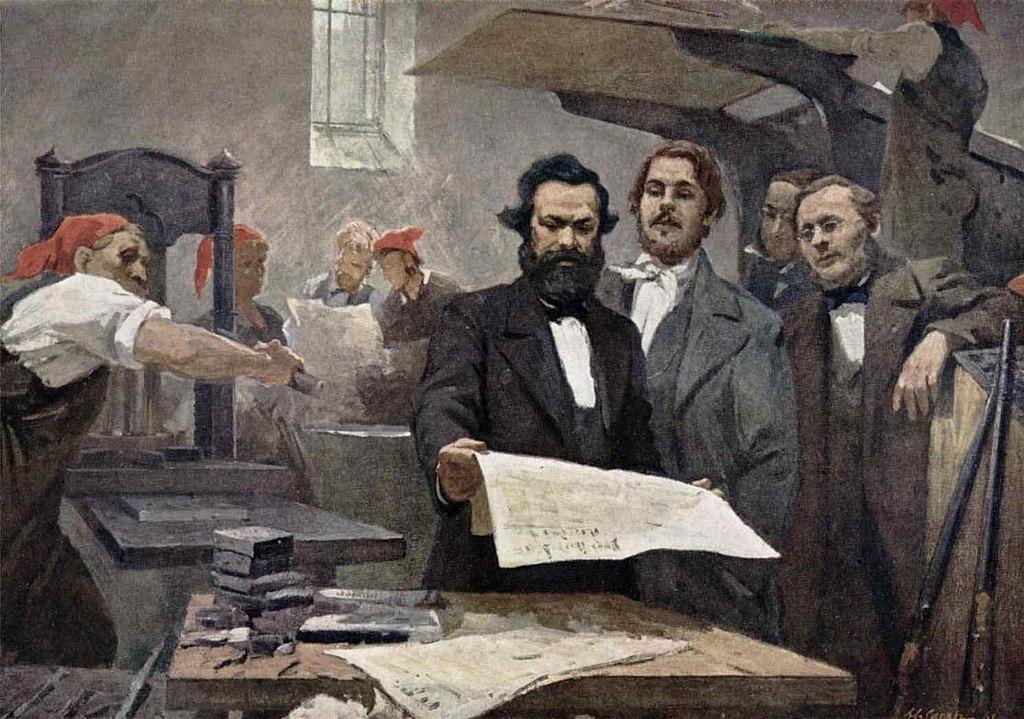Originally published at notes on cinema James McMahon A survey of academic writing on the business of culture will show that authors seldomly restrain themselves from making predictions or giving recommendations to the hypothetical economic actor. This offering of future-oriented arguments to an audience should not be surprising. The disciplines of economics, business, management studies […]
Continue ReadingRethinking Causation in the Social Sciences
Originally published on Economics from the Top Down Blair Fix For the last few weeks, I’ve been thinking about causation in the social sciences. As with many instances of reflection, this was prompted by rejection. A political economy journal recently rejected a paper that I had submitted. The paper (available here) studied the correlation between […]
Continue ReadingSpiegel Online Analysis of Deutsche Bank’s Differential Misfortune
DT Cochrane Deutsche Bank was a central figure of the 2008 global financial crisis. While some of its compatriots, such as Goldman Sachs, have re-ascended to the commanding heights of global capital, Deutsche remains a shadow of its former self as seen in the graph below (screenshot from Yahoo! Finance). A comparison of Deutsche Bank […]
Continue ReadingCochrane, ‘What’s Love Got to Do with It? Diamonds and the Accumulation of De Beers, 1935-55’
Abstract What is accumulation? Visibly, accumulation is a quantitative process, demarcated in financial quantities. However, what is the meaning of those quantities? This question has been the subject of great debate within political economic thought. A new theory of accumulation, capital as power (CasP), argues that the financial quantities of accumulation express the distribution of […]
Continue ReadingNo. 2015/02: McMahon, ‘Marxism, Culture and the Measurement of Value’
Abstract Various studies of mass culture use the Marxist labour theory of value to conceptualize how capital is being accumulated from cultural production and its broader social and immaterial dimensions. However, there is a significant methodological problem that lingers. The issue stems from the concept of economics and, more technically, the definition of capital. If […]
Continue ReadingCapital as Power and Freelance Creative Work 4
Frederick H. Pitts Resonance and dissonance in the rhythms of freelance creative work In the last blog, I applied some of Nitzan and Bichler’s ideas to freelance work in the creative industries. I utilised their conceptualisation of the distinction between creativity and power, and of the sabotage of the former by the latter. Nitzan and […]
Continue ReadingCapital as Power and Freelance Creative Work 3
Frederick H. Pitts Creativity, sabotage and the management of risk and responsibility in freelance creative work Nitzan and Bichler theorise a dissonant relation of sabotage between power and creativity, business and industry. What they show is that the control of creative processes of production is not antithetical to their success. Rather, it is constitutive of […]
Continue ReadingCapital as Power and Freelance Creative Work 2
Frederick H. Pitts Capital as Power, risk-aversion and the avoidance of uncertainty Mainstream critiques of contemporary capitalism conducted in the wake of the Great Recession tend to indict a number of factors. Perceived short-termism. The dangerous compulsion to speculate. An attraction to growth for growth’s sake. The propensity towards the greedy and rapid accumulation of […]
Continue ReadingCapital as Power and Freelance Creative Work 1
Frederick H. Pitts Rhythms of Risk and Responsibility in Freelance Creative Work This series of blogs applies Nitzan and Bichler’s theory of capital as power to the empirical concern of freelance work in the creative industries. It reports some findings from a research project I conducted earlier this year. The research was part of a […]
Continue ReadingThe Brawl on Bay Street
DT Cochrane The world of traders has largely been outside political economic analysis. With financial values treated as ‘fictitious’ representations of real values, trading is, at best, a distortion. The actual individuals who perform this role, and supporting roles in the realm of financial intermediation, are given no consideration. From the perspective of CasP, on […]
Continue ReadingColour Coded Gender
DT Cochrane Girls wear pink. Boys wear blue. This seemingly universal gender dichotomy is actually a very recent invention, as this post on smithsonian.com makes clear. At the end of the 19th century, most boys and girls were dressed in ‘gender neutral’ white dresses. These were considered a practical option, convenient for play and easily […]
Continue Reading










